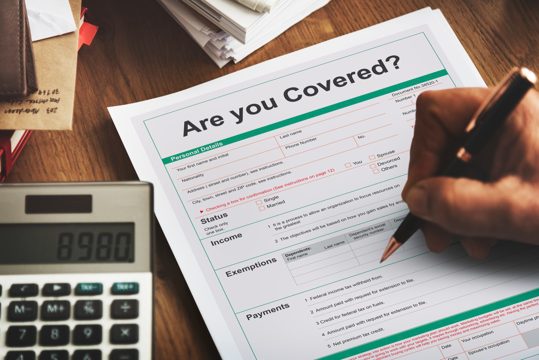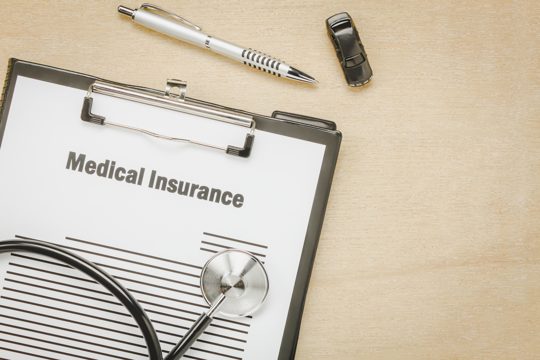Does Insurance Cover Medical Alert Systems in 2023?
Medical alert systems play a crucial role in the life of seniors and people with certain medical conditions. They provide a lifeline that allows users to summon help during an emergency.
However, one of the most common questions people have about these systems is whether their insurance would cover the cost. This article will explore the insurance coverage for medical alert systems in 2023. Medical alert systems act as key lifelines in the day-to-day existence of our senior citizens and individuals living with specific medical conditions. These systems are designed to ensure safety, security, and peace of mind, providing an immediate means of communication and assistance during times of emergency, effectively bridging the gap between the user and the necessary medical or emergency assistance. However, the crucial question that often arises in the minds of potential users revolves around the financial aspect - will their insurance cover this life-saving service? Understanding the ins and outs of insurance coverage can be a daunting task, and when it comes to medical alert systems, it can seem even more complex.

This article aims at demystifying the subject, providing a comprehensive exploration of how insurance policies interact with medical alert systems in the year 2023. From defining medical alert systems, their functions, and their necessity, we will delve into the intricacies of insurance policies, examining the numerous ways they could potentially cover the cost of these systems.
We'll look at different insurance providers, the types of coverage they offer, and how they apply to the cost of medical alert systems. We'll also guide you through the steps you can take to find out if your insurance policy covers a medical alert system, giving you the knowledge and tools to navigate this complex issue. In this way, the article transforms from a simple informational piece into an in-depth guide, ensuring you are equipped with all the necessary information to make an informed decision about medical alert systems and their insurance coverage in 2023.
Why Doesn't Medicare Cover Medical Alert Devices?
Medicare, the federal health insurance program for people aged 65 and older and certain younger people with disabilities, does not typically cover the cost of medical alert systems. This is primarily because medical alert devices are considered 'convenience items', rather than necessary medical equipment.
Medicare, the federally funded health insurance program, is specifically designed to provide coverage to individuals who are aged 65 or older, as well as to younger individuals with certain disabilities. This program is a lifeline for many, covering a wide array of medical services and equipment. However, it might surprise you to know that the cost of medical alert systems, devices that can be pivotal in ensuring the safety and well-being of these individuals, is not typically covered by Medicare. The fundamental reason behind this is that medical alert systems are often classified as 'convenience items.

' In essence, this means that they are viewed more as items that improve the quality of life, rather than being seen as essential, lifesaving medical equipment. Although these devices can provide a faster response in emergency situations, especially for those with serious medical conditions or those living alone, Medicare's current policies do not acknowledge them as necessary.
However, it's important to remember that these devices, despite their classification, can indeed play a critical role in maintaining the independence and safety of seniors and people with disabilities. They provide a continuous connection to emergency assistance, enabling immediate response in case of medical emergencies. As such, it's worth exploring alternative funding methods or insurance options that could potentially cover the cost of these medical alert systems, given their significance in ensuring the safety and peace of mind for individuals who need them.
Does Medicare Advantage (Part C) Cover Medical Alert Systems?
Medicare Advantage, also referred to as Part C, is an alternative to Original Medicare. It is provided by private insurance companies and includes all the benefits of Medicare Parts A and B, and often additional benefits as well.
Some Medicare Advantage plans may cover the cost of medical alert systems, but this is not a universal feature of these plans and varies from plan to plan. Medicare Advantage, otherwise known as Part C, serves as an enticing alternative to traditional Medicare, offering more than just the basics. This widely embraced option is brought to you by private insurance companies who strive to provide more comprehensive health coverage. More than just delivering the standard benefits of Medicare Parts A and B, which cover hospital and medical insurance respectively, Medicare Advantage often goes the extra mile, providing an array of additional benefits that are designed to cater to your diverse health needs. One such additional benefit that certain Medicare Advantage plans may offer is the coverage of medical alert systems. These systems, also known as Personal Emergency Response Systems (PERS), offer critical assistance in emergency situations, providing peace of mind for both the user and their loved ones.

Whether it's a fall, medical emergency or home intrusion, these systems can be lifesavers. However, it's important to note that not all Medicare Advantage plans include this feature - it varies greatly from plan to plan.
Therefore, it's crucial for potential enrollees to thoroughly explore and compare different plans to ensure they're selecting an option that best caters to their individual health and safety needs. In conclusion, Medicare Advantage, or Part C, is more than just an ordinary health insurance plan. It's an opportunity for individuals to customize their Medicare experience, benefiting from the established Medicare Parts A and B, while also taking advantage of additional benefits that may be included, such as the coverage of medical alert systems. However, remember that these additional benefits vary from plan to plan, so a careful comparison and understanding of each plan is essential.
Medicaid and Medical Alert Systems
Medicaid, a state and federal program that assists with medical costs for some people with limited income and resources, may cover the cost of a medical alert system. However, coverage varies by state and based on individual circumstances, so it's crucial to check with your local Medicaid office.
Medicaid, a joint state and federal initiative, was established to assist those individuals who have limited income and resources with their medical expenses, which may, in some cases, include the cost of a medical alert system. A medical alert system is an invaluable tool that can provide peace of mind and a lifeline in emergency medical situations, particularly for seniors and individuals with certain health conditions. These systems function as a personal emergency response system, allowing users to call for help with a simple press of a button. However, it's essential to note that coverage for a medical alert system under Medicaid is not guaranteed. This is because the specifics of what Medicaid covers can vary greatly from state to state.

Each state has its own unique set of rules and regulations governing what services and items are covered. Therefore, it's not a one-size-fits-all situation, but a complex matrix of individual state policies and personal circumstances that determine whether or not a medical alert system will be covered.
Given these variations, it's absolutely crucial for individuals to take the initiative and check with their local Medicaid office. That way, they can obtain accurate, personalized information regarding their potential coverage. This proactive step can help individuals understand their options, avoid unpleasant surprises, and plan for their medical needs effectively. So, don't hesitate to reach out to your local Medicaid office to gain clarity on your coverage eligibility for a medical alert system, as it's a vital resource that can provide added safety and peace of mind in times of medical emergencies.
Private Insurance and Medical Alert Systems
Private health insurance policies vary widely in what they cover. Some may include coverage for medical alert systems, particularly if prescribed by a doctor, while others may not.
When it comes to private health insurance policies, it's essential to understand that they differ significantly in terms of what they cover. Navigating through the labyrinth of these policies can be quite challenging due to their complexities. Some policies may indeed include coverage for medical alert systems, a critical feature for those managing chronic conditions or at an advanced age. These advanced alert systems are designed to provide quick, efficient communication with healthcare professionals in case of emergencies, making them a potentially life-saving tool. However, it's important to note that coverage for these systems is not universal across all insurance policies. For some insurers, the inclusion of a medical alert system in a coverage plan may hinge on a prescription from a trusted physician. This means that you'll need to have a doctor's recommendation to avail of this benefit, enhancing the plan's value and ensuring that your health needs are comprehensively met.

On the flip side, there are also policies that may not offer coverage for medical alert systems. In these cases, the policyholder would need to cover the cost out of pocket.
This is why it’s crucial to thoroughly review and understand your insurance policy, so you are not blindsided by unexpected expenses. An open dialogue with your insurance provider can help clarify these details, enabling you to make informed decisions about your health coverage. In conclusion, while private health insurance policies can be a maze of varying coverage, understanding the specifics can help ensure that you are adequately protected. Whether your policy covers medical alert systems could be crucial, especially if you have specific health conditions. Therefore, always remember to consult with your doctor and insurance provider to understand the full extent of your coverage.
Long-Term Care Insurance and Medical Alert Systems
Long-term care insurance, which covers care not typically covered by health insurance, Medicare, or Medicaid, may cover the cost of a medical alert system. It's important to read your policy carefully to understand what is and isn't covered.
Long-term care insurance, a specialized policy that covers care not traditionally catered for by regular health insurance, Medicare, or Medicaid, might provide coverage for the expense of a medical alert system. Such a system could prove to be invaluable, especially for older adults or those living with chronic conditions, providing them with a sense of security and independence. Now, it's of paramount importance to thoroughly read and understand your policy. This way, you will be well-informed about what is covered and what is not. Make sure you dig into the details and clarify any ambiguities with your insurance provider.

You wouldn't want to overlook any hidden clauses or conditions that might surprise you later. Remember, knowledge is power, and the more you know about your policy, the better prepared you'll be in the face of unexpected situations.
Moreover, consider having a conversation with your insurer about the potential of including a medical alert system in your coverage, if it's not already provided for. Explaining your individual needs and circumstances may encourage them to adapt your policy to your advantage. Thus, long-term care insurance isn't just about getting coverage; it's about ensuring that the coverage you receive is tailored to your specific needs. Be proactive, be informed, and make the most of your long-term care insurance.
Veteran's Benefits and Medical Alert Systems
Veterans and their spouses may be eligible for benefits that can cover the cost of a medical alert system. The Department of Veterans Affairs (VA) has programs that may help to defray the cost.
Veterans and their spouses, who have devoted their lives to serving our country, might be eligible for significant benefits that can help cover the expense of a medical alert system. These life-saving devices are critical for the elderly or those with specific medical conditions, providing a lifeline in the event of an emergency. Designed to offer peace of mind and enhance independence, these systems can be a true game-changer for the safety and well-being of our veterans and their loved ones. The Department of Veterans Affairs (VA), an organization perpetually committed to supporting those who've honorably served in the military, offers various programs that can substantially alleviate the financial burdens associated with acquiring these medical alert systems. The VA understands the importance of these tools in fostering a secure living environment for veterans and their spouses.

By providing such benefits, the VA echoes its commitment to ensuring the safety, health, and wellness of our nation's heroes and their families. So, if you're a veteran or a spouse of a veteran, it's worth exploring these benefits that you might be eligible for.
By leveraging these programs, you can acquire a medical alert system at a reduced cost or even free of charge. It's a small token of gratitude for the immense sacrifices you've made for our country. With the VA's help, you can live more comfortably, knowing that help is just a button press away, should you ever need it.
Medical Alert Systems and Workers' Compensation
If a medical alert system is needed due to a work-related injury, workers' compensation insurance may cover the cost. However, this will depend on the specifics of the case and the insurance policy.
Navigating the complexities of healthcare can be daunting, especially when it involves injuries sustained in the workplace. If you find yourself needing a medical alert system due to such an injury, there's good news to ease your worries. Depending on the unique circumstances surrounding your case and the specific details of your workers' compensation insurance policy, you may be eligible to have the expenses associated with this system fully covered. This possibility is not universally applicable, but it's certainly worth exploring. Workers' compensation insurance policies are designed to provide support and financial relief to employees who have been injured on the job. They offer a range of benefits to help mitigate the financial burden that often accompanies work-related injuries.

One such benefit could be the coverage of the cost of a medical alert system. These systems are invaluable in providing an immediate response and assistance during medical emergencies, thus ensuring the safety and health of the injured party.
However, it's crucial to remember that the coverage of the cost will greatly depend on the specifics of the case. This may include the severity of the injury, the necessity of the medical alert system, and the terms and conditions of your insurance policy. Your insurance provider will likely assess your case and determine if the medical alert system is an essential need based on your injury. In conclusion, while workers' compensation insurance may cover the cost of a medical alert system, it's vital to review the specifics of your case and insurance policy. This will help ensure that you can receive the maximum benefits you're entitled to and continue to focus on your recovery in a worry-free environment.
Medical Alert Systems and Health Savings Account (HSA)
Health Savings Accounts (HSAs) can also be used to pay for a medical alert system. HSAs are pre-tax funds set aside for health-related expenses not covered by insurance, including medical alert systems.
Health Savings Accounts (HSAs) present an incredibly viable option for covering the costs of a medical alert system, an essential tool that ensures the safety and well-being of seniors or individuals in need of medical supervision. An HSA, as the name suggests, is essentially a pool of pre-tax funds that you set aside specifically to cater to health-related expenses that your insurance might not cover. This is particularly advantageous as it allows you to manage your finances effectively while ensuring that you can take care of any unforeseen medical expenses. One of the most significant and often overlooked uses of HSAs is to fund medical alert systems. A medical alert system, often a life-saving necessity, can provide peace of mind to both the user and their loved ones.

It serves as an immediate link to emergency medical assistance when it's needed most. These systems, although indispensable, might not always be covered under traditional insurance policies.
This is where an HSA comes into play. By using the money from your HSA to invest in a medical alert system, you're not only making a smart financial decision, but you're also giving yourself or your loved one the gift of safety and security. The pre-tax benefit of an HSA can negate some of the cost of these systems, making them more affordable and accessible. Therefore, the strategic use of an HSA for a medical alert system is a sound decision that combines financial prudence with a commitment to health and safety.
Medical Alert Systems and Flexible Spending Account (FSA)
A Flexible Spending Account (FSA) is another type of account that allows you to set aside pre-tax dollars for health-related expenses. FSAs, like HSAs, can be used to pay for medical alert systems.
A Flexible Spending Account, also known as an FSA, is a unique, advantageous type of account that permits you to allocate pre-tax dollars for expenses related to your health. It acts as your personal healthcare fund, which you can use at your discretion. By setting aside a portion of your earnings before taxes, you are effectively reducing your taxable income while simultaneously creating a safety net for future medical expenses, which can be a great financial strategy. FSAs share similarities with Health Savings Accounts (HSAs) in terms of functionality and purpose. They are both designed to help you manage your healthcare costs effectively.

They can both be used to pay for a wide range of health-related expenses, including medical alert systems. Medical alert systems are critical tools that provide immediate help during a medical emergency, ensuring safety and peace of mind for you and your loved ones.
In essence, by taking advantage of the pre-tax benefits of an FSA, you are not only being proactive about your future health expenses but also ensuring a level of security and preparedness in times of emergencies. So, whether you are planning for routine medical expenses or safeguarding against unexpected health crises, an FSA can be a valuable tool in your healthcare and financial planning. It is a practical, economical, and smart way to secure your health and wellbeing.
Other Ways to Reduce or Eliminate the Cost
There are other ways to reduce or eliminate the cost of medical alert systems. This includes nonprofit organizations that provide financial assistance, discounts for low-income individuals, and payment plans offered by medical alert companies.
Indeed, there are multiple avenues one can explore to substantially minimize or even eradicate the expense associated with medical alert systems. Various nonprofit organizations, for instance, are dedicated to offering financial aid to those in need. These entities are fueled by their commitment to ensure that everyone, regardless of their economic background, has access to life-saving medical alert services. They work tirelessly to pool resources, often via donations or grants, which they then allocate to individuals who find the cost of these systems prohibitive. Moreover, discounts for low-income individuals are another potent way to alleviate the financial burden posed by these systems. Many medical alert companies understand that their services are essential for a vast demographic that may not always be able to afford them. In a bid to bridge this gap, they offer generous discounts, making their products more accessible to those with limited means.

These concessions are often based on income thresholds, and are specifically designed to cater to the economically disadvantaged. Further, many medical alert companies also offer flexible payment plans.
They acknowledge that while their services are crucial, their costs can sometimes seem daunting to potential users. To combat this, they offer the option to spread out the payment over a duration, making it more manageable. These plans serve to break down the total cost into smaller, more digestible amounts, easing the financial strain and ensuring that the service remains within reach for all. In conclusion, while the cost of medical alert systems can initially appear steep, there are several ways to mitigate or even negate these expenses. Through the collective effort of nonprofits, the willingness of companies to offer discounts and payment plans, these life-saving services can be made accessible to everyone, irrespective of their financial situation.
The Importance of Medical Alert Systems
Despite the cost, the value of medical alert systems cannot be overstated. They provide peace of mind for users and their families, knowing that help is just a button press away.
Indeed, regardless of the initial financial investment, the significance and worth of medical alert systems is simply immeasurable. These systems are a lifeline, a constant companion that stands guard, ready to provide aid at a moment's notice. They offer an unparalleled level of security and reassurance not only to the users themselves, but also to their loved ones. Family members can find comfort and relief in knowing that, even in their absence, their elderly or medically vulnerable relatives have the means to summon help instantly with the simple press of a button. Moreover, the value of these systems extends beyond the immediate physical safety they ensure. They also contribute to the emotional well-being of the users and their families.

The looming fear of emergencies, especially when alone, can be overwhelming for some. But with a medical alert system at their disposal, users can maintain their independence without compromising their safety.
They can go about their daily activities, secure in the knowledge that immediate assistance is within reach should they need it. This peace of mind is priceless, and it alleviates the emotional burden often carried by those who worry about their loved ones. In essence, the cost of a medical alert system pales in comparison to the immense value it provides. It is more than a device; it is a trusted companion, a vigilant guardian, and an indispensable tool for maintaining the safety, independence, and emotional well-being of those who rely on it.
Conclusion
While Medicare doesn’t cover medical alert systems, there are numerous other ways to reduce or eliminate the cost. It's important to explore all options, including private insurance, Medicaid, long-term care insurance, and veteran's benefits, to find a solution that fits your needs and budget in 2023.
While it may seem discouraging at first that Medicare doesn’t cover medical alert systems, it's crucial to consider that there are indeed numerous other avenues to explore that could effectively reduce or entirely eliminate the cost. It's like opening a door only to find another one behind it; there’s always another option if you know where to look. In the vast landscape of healthcare and insurance, private insurance is one such option that may provide coverage for these systems. With an array of plans and benefits, private insurance could potentially be the key to receiving coverage for your medical alert systems. You might be surprised at the possibilities that await you once you delve into the specifics of your private insurance plan. Similarly, Medicaid, a joint federal and state program that helps with medical costs for some people with limited income and resources, may also assist in covering the cost. Each state has different rules about eligibility and applying, hence it's worth checking with your local office to learn more about the potential advantages that may be available to you.

Long-term care insurance, too, is a notable option to consider. These policies often cover a broader range of services, including personal and custodial care in a variety of settings.
With this type of insurance, you might find that the coverage extends to medical alert systems as well. Lastly, don't overlook the possibility of veteran's benefits. If you've served in the military, these benefits could potentially provide financial assistance for your medical alert system. It's a token of gratitude for your service and can significantly reduce your out-of-pocket expenses. In the year 2023, it's more important than ever to be diligent and thorough in exploring all options. In the ever-evolving world of healthcare and insurance, the ideal solution that perfectly fits your needs and budget could be just around the corner.
About us
Welcome to HealsHub! Your go-to source for all things related to health and wellness! We're here to help you lead a healthier, happier life by providing you with the latest news, research, and advice on topics like nutrition, fitness, mental health, and more. Our mission is to empower you to take control of your health and well-being through education and inspiration. Whether you're looking to lose weight, build muscle, manage stress, or simply learn more about how your body works, you'll find everything you need right here on healshub.com. We believe that everyone deserves to live a healthy, fulfilling life, and we're committed to providing you with the tools and resources you need to achieve your goals. So take a look around, explore our articles and resources, and start your journey towards better health today!

